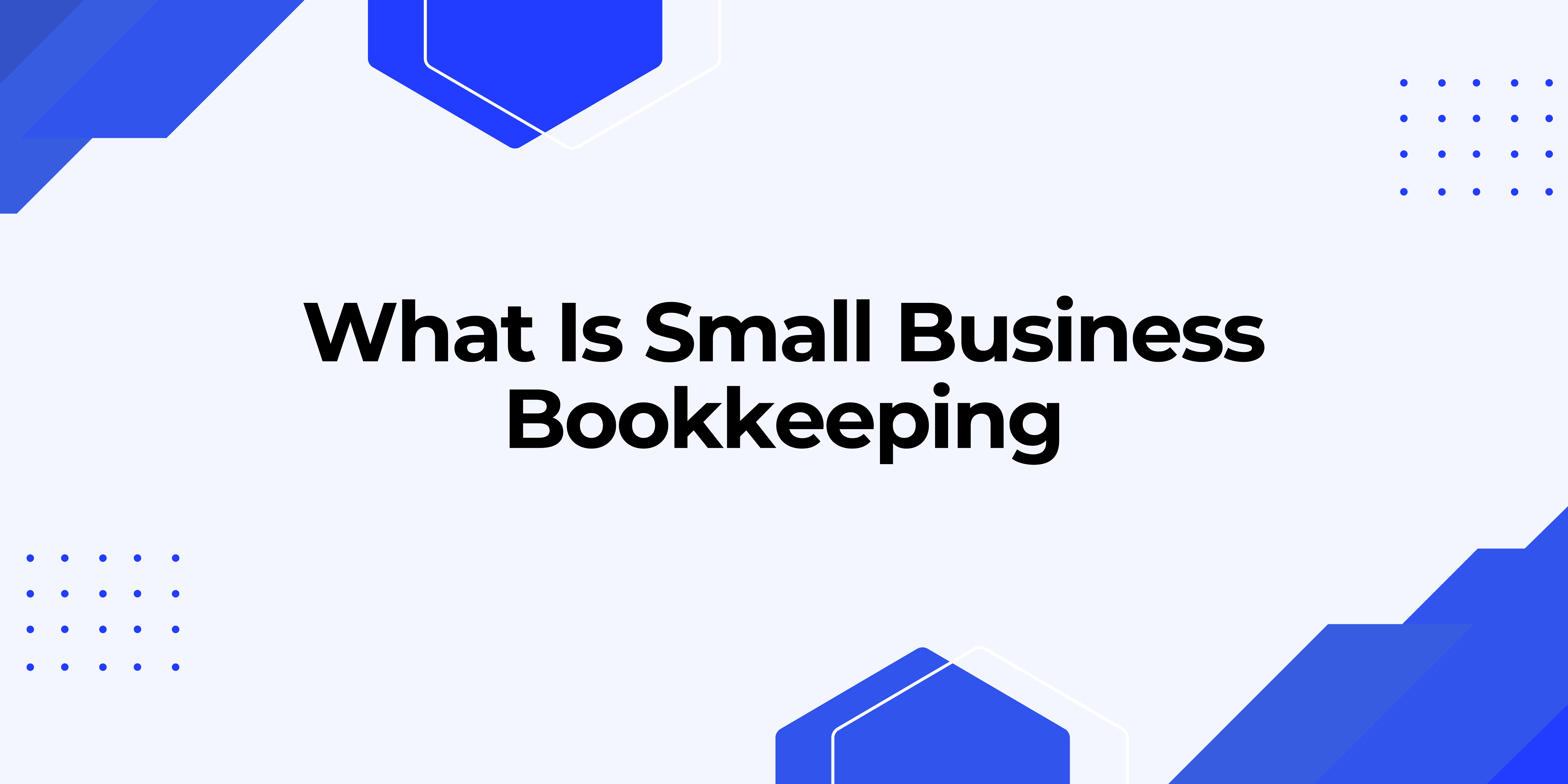
If you’ve just started a small business, chances are bookkeeping isn’t the first thing on your mind. You’re probably more focused on getting customers, building your brand, or improving your product or service. But here’s the truth without proper small business bookkeeping, even the best business ideas can run into financial trouble.
Did you know that poor financial management is one of the top reasons small businesses fail within their first five years? Bookkeeping is what keeps your business organized, compliant, and financially healthy. The good news? You don’t need to be an accounting expert to get it right, you just need the right knowledge, tools, and systems.
In this guide, we’ll break down everything you need to know about bookkeeping for small businesses. You’ll learn what bookkeeping is, why it matters, how to do bookkeeping step by step, and even some practical tips to make it easier. Whether you’re a freelancer, side hustler, or small business owner, this guide will help you take control of your numbers with confidence.
At its core, bookkeeping is the process of recording and organizing your business’s financial transactions. Think of it as keeping a diary of your money, what comes in (income) and what goes out (expenses).
For small business bookkeeping, this typically means tracking:
While bookkeeping is not the same as accounting, they work hand in hand. Bookkeeping records financial data, while accounting interprets and analyzes it. If bookkeeping is like building the foundation of a house, accounting is the architecture that makes sense of the design.
Read More: What Is AI Bookkeeping? A Beginner's Guide for Small Businesses
You might wonder, why not just check your bank balance to know how much money you have? The reality is, bookkeeping provides insights that go far beyond what’s in your account today.
Here’s why bookkeeping matters:
1. Keeps Your Finances Organized
When tax season rolls around or you apply for a loan, having accurate financial records makes the process smooth instead of stressful.
2. Helps You Make Informed Decisions
With clear numbers, you can answer important questions like:
3. Ensures Tax Compliance
Bookkeeping helps you track deductible expenses, calculate sales tax, and avoid penalties.
4. Improves Cash Flow Management
You’ll know how much money is coming in, when payments are due, and whether you need to adjust spending.
5. Builds Business Credibility
Investors, lenders, and even potential partners want to see accurate financial statements before working with you.
In short: bookkeeping isn’t just about compliance, it’s about growth, strategy, and peace of mind.
Many people use the terms interchangeably, but bookkeeping and accounting serve different purposes.
Bookkeepers make sure the data is accurate, while accountants use that data to provide insights and strategy. Both are essential for a healthy business.
If you’re new to bookkeeping, don’t worry, it’s more manageable than it sounds. Here’s a step-by-step breakdown of what you need to do.
There are two main methods of bookkeeping:
Most small businesses benefit from double-entry bookkeeping because it’s more accurate and accepted for financial reporting.
For example:
Many small businesses start with cash basis because it’s simpler, but accrual gives a more accurate long-term picture.
Mixing personal and business finances is a recipe for chaos. Keep them separate with a dedicated business checking account and ideally, a business credit card.
This includes sales, purchases, invoices, payroll, and bank activity. Cloud-based bookkeeping software makes this much easier than doing it manually.
Organize expenses into categories such as:
This helps with tax deductions and financial insights.
Compare your books with bank statements to catch errors or missing transactions.
Bookkeeping leads to important reports like:
Traditionally, bookkeeping was done in paper ledgers or spreadsheets. Today, most small businesses use cloud-based bookkeeping software for efficiency.
Manual Bookkeeping
Cloud-Based Bookkeeping
Example: Instead of manually typing each expense into a spreadsheet, tools like QuickBooks, Xero, or Wave automatically import transactions from your bank and categorize them.
Even with the best intentions, small business owners often make mistakes that cost time and money. Here are the big ones:
It depends on your business size, complexity, and comfort level with numbers.
Remember, even if you outsource bookkeeping, you should still understand the basics to make informed decisions.
If you’re serious about managing your books efficiently, cloud-based accounting software is the way to go.
Key benefits:
Read more: What Is Cloud-Based Accounting Software?
Bookkeeping isn’t just about compliance, it’s a strategic tool. Here’s how it supports growth:
In short, bookkeeping gives you the clarity and confidence to scale your business sustainably.
Here’s a quick checklist you can use to stay on track:
Bookkeeping may not be the most glamorous part of running a business, but it’s one of the most important. With proper small business bookkeeping, you gain clarity, confidence, and control over your finances. You’ll be better equipped to make smart decisions, avoid costly mistakes, and set your business up for long-term success.